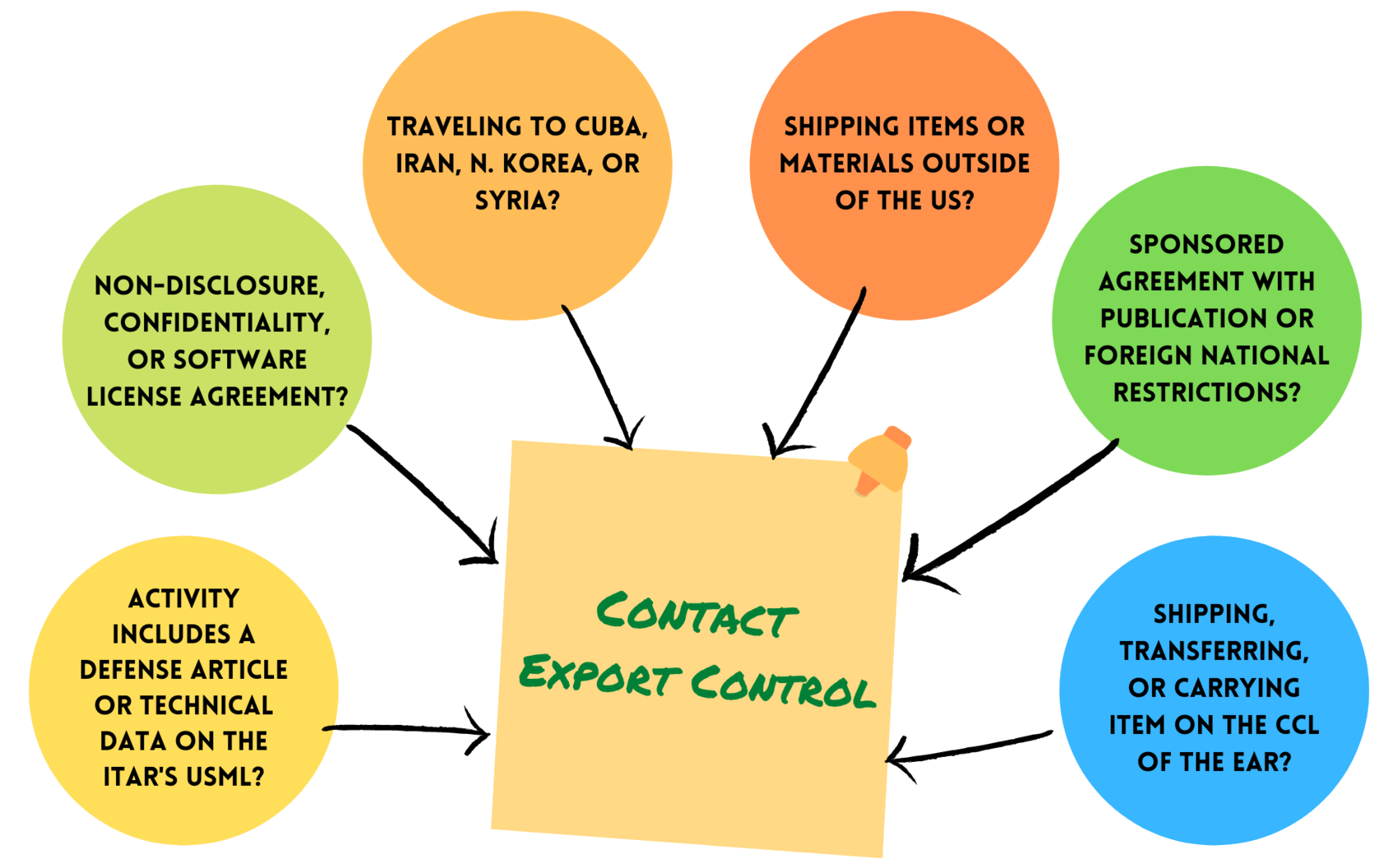What are Export Controls?
Export Controls are federal laws that regulate the shipment or transfer of controlled items, software, technology, or services outside of the United States. In addition, these laws also restrict the release of certain information to foreign nationals in the U.S., otherwise known as a “deemed export.”
In order to ensure compliance with export controls, it is critically important for university personnel to identify when their activities may trigger export controls. Typical university transactions or activities can or may have export control implications, including:
- Collaborating with a foreign institution, person, military or entity
- Receiving export controlled data, materials or research samples
- Sponsored research awards which include publication restrictions, proprietary or export controlled information, technology, hardware or software, or request that only U.S. persons work on a project or the citizenship status of the research team
- Foreign nationals’ access to controlled items or information
- Shipping or hand-carrying equipment, items, samples or controlled data internationally
- Developing a technology that may fall on the U.S. munitions list
- Purchasing or receiving hardware or paperwork that the vendor or sponsor has designated “ITAR," "U.S. Only,” “No Export”
- Transactions involving sanctioned countries such as Cuba, Iran, North Korea, and Ukraine (Crimea, Donetsk, & Luhansk Regions)
Best Times to Include Export Control

Export Control Red Flags
Export Control Team
Brian McCurdy
Export Control Officer
Joanna Arias
Research Engagement & Compliance Officer
Export Control
General Export Control Inquiries